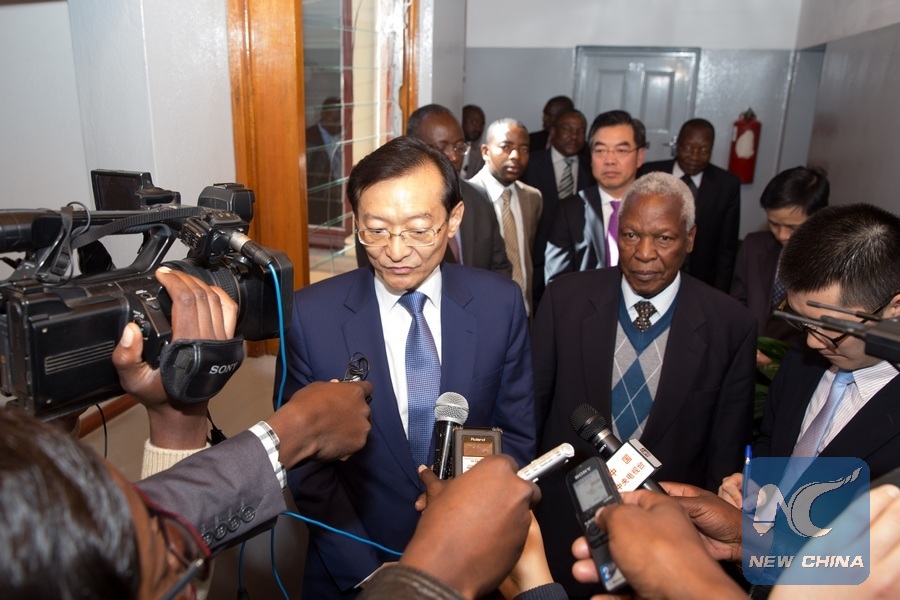 |
| After the meeting with Mugabe: credit Xinhua |
But what kind of new deals did the Chinese really agree to do? And what progress did they report? They agreed to build a new parliamentary building. (Perhaps they are getting ready for a political transition that can't be too far off). The envoy gave fulsome details: "I reported to President Mugabe that China has already completed the design of the Parliament building and submitted three design plans to the Zimbabwe side and we are waiting for the confirmation from the Zimbabwean side for the early launch of this project." The Chinese also donated 20,000 tons of rice to help Zimbabwe weather its drought. The envoy talked about three projects financed several years ago (Victoria Falls airport and Harare water system, and a power project). No other projects were mentioned.
(In a similar move, after Nigeria's president visited China recently, the Nigerian press was full of stories about an alleged $6 billion loan pledge for infrastructure. Yet there has never been any confirmation of a loan package from the Chinese, who have so far said only that they are prepared to provide a grant of $15 million to help agricultural development in Nigeria. I doubt very much that there was ever a loan pledge -- but I also wouldn't be surprised to see this enter the databases as a commitment of "Chinese aid".)
Some in Zimbabwe understand that their state media is required to trumpet the "success" of Harare's "Look East" policy. Yet most understand that China is not providing much assistance to their troubled country. As Brett Chulu wrote in the Zimbabwe Independent recently about the lack of Chinese support: "There must be something fundamentally amiss when as a country we are failing to access meaningful finance from our supposedly all-weather friend's sea of cash."
So, on the official African side: China is supporting us, big time! On the official Chinese side, the announcement of a donation and a prestige aid project. Venus and Mars?




